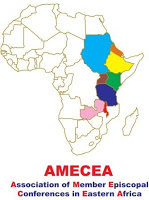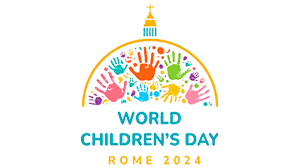AMECEA: Secretariat Staff undergo Training on Child Protection

The AMECEA Pastoral department organized one-day training to Secretariat staffs on the need to have child safeguarding standards in institutions.
The training which took place on Tuesday 26, June at the AMECEA secretariat, was attended by all the AMECEA staffs together with the heads of various departments.
According to the AMECEA Pastoral Coordinator Rev. Fr. Emmanuel Chimombo, the necessity to develop child protection policies was impelled by the request from the Holy Father Pope Francis.
“The background of this, is that the Holy Father through the Pontifical Commission for Protection of Minors, directed that all Conferences and Church Institutions should come up with policies on the protection of minors,” Fr. Chimombo explained adding, “there was some form of neglect in some parts of the world and the Catholic Church was affected by that. Therefore, AMECEA being a Church institution, we are not spared.”
Even though conferences are independent Institutions, uniformity on common issues is key in developing policies to protect children. “All conferences and dioceses are autonomous, but as members of one family especially within AMECEA region, we took the initiative to ensure that there is uniformity especially on issues that are quite common within the region, so that all conferences can have a common guiding tool,” recalls Fr. Chimombo who was also the convener of the training.
The facilitator for the day Ms. Isabel de Bruin Cardiso, instructed the staffs on why institutions should play a key role in safeguarding of children, and why children should be protected.
“Child safeguarding is a role that organization’s play to ensure that they do not harm the children. The staffs’ from various departments in an organization have different roles and responsibilities in safeguarding children,” Isabel said and explained further, “the more vulnerable a child is, the greater the chance of them being exposed to risk, and the higher chances their protection is being violated.”
Besides the different responsibilities of staffs, the other key objective of the training was on the safeguarding roles which the organizations should know when developing effective policies.
In her remarks, the facilitator explained to the staffs that when designing policies, it is necessary to identify where child risks can normally occur so that with such awareness, they can develop effective policies. She focused on four key safeguarding roles which need to be considered during policy formulation. These include;
Policy- This describes how the organization responds to the harm of children appropriately. Through policies the risk to harm of children is controlled. Implementation of policy is easier if it takes into consideration the context where it works.
People-This involves people who make Institutions. Policy identifies roles and responsibilities for different people within the organization.
Procedures- This dictates how organizations respond and implement policies.
Accountability- This is for the whole team. It reflects on how an organization implements safeguarding measures and how it is being monitored and the extent to which safeguarding discussions are being facilitated.
By Sr. Antoinette Jecinter Okoth, FSSA


